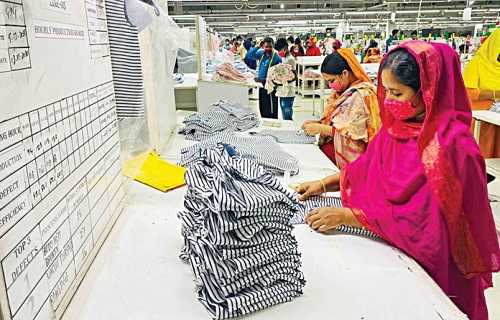Active Apparel Diplomacy Can Help Bangladesh Survive Between the Fittest
08 March, 2021

Bangladesh is finally moving from being a least developing country to a developing nation according to United Nations’ Committee for Production Policy (CDP). And according to a Daily Star record, this advice will be endorsed by the United Nations Economic and Social Council (ECOSOC) in June this season with the ultimate approval from the UN General Assembly in September. Because of this advice, CDP considered three eligibility standards incorporating: per capita income, individual assets, and monetary and environmental vulnerability. Bangladesh achieved all these requirements in the next triennial analysis itself with the RMG sector largely contributing to its success.
The robust growth of RMG industry is attributed to its status as a Least Developing Country (LDC). As a LDC, Bangladesh enjoys duty-free market access to the European Union (EU)-under the EU's Generalized Scheme of Preferences (GSP).
LDC graduation to end GSP status
Even so, its graduation to a growing country will now eliminate this benefit from Bangladesh. To keep enjoying duty-free market usage of the EU,Active outfits diplomacy can help Bangladesh survive between the fittest it will will have to achieve the GSP Plus status. Because of this, Bangladesh will have to boost exports of its goods qualifying for GSP status, besides making certain its three-year standard exports of these products usually do not exceed 6.5 % of their total import by the EU. However, clothes imports from Bangladesh makes up about about 9 % of EU’s total clothing imports from the world.
Bangladesh therefore, must convince EU to improve this threshold to 12-13 % by adopting apparel diplomacy. The CDP has also recommended the country become granted five years to transit from being truly a LDC to a growing nation. During these five years Bangladesh must continue apparel diplomacy to verify the GSP Plus status for post-LDC period.
Apparel diplomacy for fruitful collaborations
The changing global apparel situation requirements a close collaboration between Bangladesh industry and its own government. The country must contact form a joint taskforce with the Ministry of Overseas Affairs, Ministry of Commerce, and Bangladesh Garment Manufacturers and Exporters Association (BGMEA) to perform the required apparel diplomacy for attaining GSP In addition.
Bangladesh must also move from its traditional US and EU market segments to explore new ones like Japan, South Korea, Russia, Latin American countries, China and India. It can no longer be based upon favorable or subsidized trading conditions. To survive amidst the fittest, the Bangladesh federal government and trade bodies need to pursue a dynamic apparel diplomacy that will enable them to create productive partnerships with their major trading partners.
Source: www.fashionatingworld.com
TAG(s):
